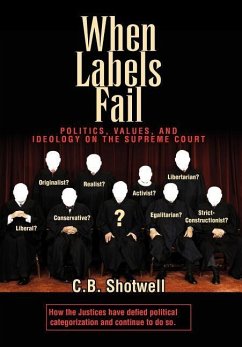WHEN LABELS FAIL: A PARADOXICAL VIEW OF THE SUPREME COURT Presidents, Senators, lawyers, and pundits have been repeatedly confounded by the performance of justices on the Supreme Court throughout its history. Despite their best efforts to predict behavior of nominees for the Court, the justices defied political categorization, such as: * The lawyer who lost a states' rights case before the Supreme Court, but went on to become a pro-Federalist Chief Justice. * The former Federalist politician who became a pro-states' rights Chief Justice. * The progressive justice who outraged the progressive president who nominated him to the Court by voting against key anti-trust legislation. * The co-founder of the American Civil Liberties Union who shocked former colleagues by consistently voting against major civil liberties and civil rights cases on the Court. * The staunch New Deal supporter who came to favor individual rights and liberties over governmental power. * The former Ku Klux Klan member who joined the majority in a decision against racial segregation. * The justice appointed by a Democratic president who emerged as a conservative supporter of law and order. * The originalist whose conservative methodology frequently leads to liberal results. This book explores the origin of separation of powers, how the Constitution created a judiciary designed to stand apart from the "political" branches of government, and how justices have maintained independence as a third branch of government throughout the history of the Court.








